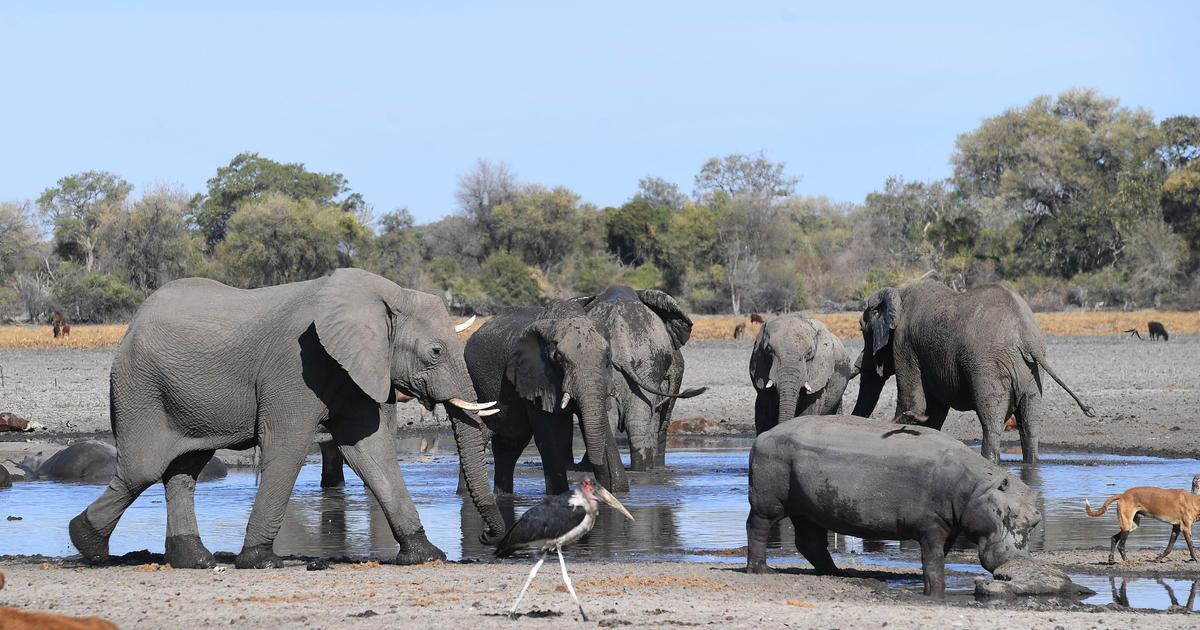Botswana auctions off elephant hunting licenses

A few minutes every morning is all you need.
Stay up to date on the world's Headlines and Human Stories. It's fun, it's factual, it's fluff-free.
Botswana auctioned off six hunting licenses on Friday. Each license allows hunters to kill 60 elephants in “controlled areas”. The auction is the first to be allowed in the country since President Mokgweetsi Masisi lifted a five-year ban on trophy hunting last year. The auction was conducted by a local firm, Auction It Botswana, from the premises of the Ministry of Environment, Nature Conservation and Tourism in the capital Gaborone.
“Seven hunting packages, of 10 elephants each, were available for auction. Only one (package) was not sold as no bidders met the reserve price of 2 million pula (US$181 000)," said Adrian Rass, managing director of Auction It Botswana. “The six (packages) were sold for a total price of 25.7 million pula (US$2.3m).”
The Botswana government says hunting is necessary to reduce the risk of human-wildlife conflict, as farmers have had crops and infrastructure destroyed and people have been trampled by elephants that roam outside of game parks and into communities. It also believes that the income from trophy hunters can benefit local communities.
The government has issued a quota of 272 elephants to be killed during this year’s hunting season, which lasts from April to September.
Criticism from conservationists
Conservationists have condemned the auction, with many fearing that licensed hunting could fuel demand and encourage even more illegal poaching.
Rosemary Alles, co-founder and president of the Global March for Elephants and Rhinos, said, “Studies have shown that local communities do not reap the benefits that they are promised from the hunting industry.
“Killing 272 elephants in Botswana will not control elephant numbers, it will not reduce human-elephant conflict and will not create jobs in areas where opportunities are scarce.
“Appropriate land-use planning including dedicated migratory corridors will aid elephant dispersal and increase the probability of amicable human elephant coexistence.”
Audrey Delsink, Africa’s wildlife director for the global conservation lobby, Humane Society International, called the hunting auction “deeply concerning and questionable.”
“Hunting is not an effective long-term human-elephant mitigation tool or population control method,” Delsink said.
“Hunting elephants may not be a standard tool of sustainable use of natural resources, or the best method of alleviating the problem of human-wildlife conflict,” said Neil Fitt, former chief executive of the Kalahari Conservation Club (KCC). “But I do not see a problem if the hunting is done in a proper, ethical and above-board manner," Fitt said.
Elephants in Botswana
Africa’s elephant population has plummeted, mostly due to ivory poaching, and the species is listed as vulnerable by the International Union for Conservation of Nature (IUCN).
Botswana is home to the continent’s largest elephant population, with an estimated 130,000 — almost a third of the continent’s total. The number of elephants in the country has increased since the 1990s, leading to an increase in human-wildlife conflict. The construction of infrastructure and farmland has also forced elephants to migrate.
Last year, Otisitwe Tiroyamodimo, the director of the Department of Wildlife and National Parks said that there were many factors involved in the elephants’ increased migration, including climate change. “We started seeing that as soon as the rain started decreasing, the vegetation started deteriorating and then the elephants naturally migrated outside their natural range because they were getting very little water and very little feed," he said.
In May of last year, President Mokgweetsi Masisi lifted the trophy hunting ban, which had been introduced by his predecessor Ian Khama in 2014 to reverse the decline in the elephant population. Residents in areas close to elephants praised the decision, arguing that conflict between humans and elephants has increased since the ban was introduced.
President Masisi dismissed the criticism his decision elicited from conservationists, saying, “They feel that they are pets, yes they are also our pets, but they are pets that we like to admire from afar.”
“The problem is they want to admire the pets when they are assured of their own protection, when they are here for a short while and then admire them from afar via television,” he added.
[article_ad]




Comments ()